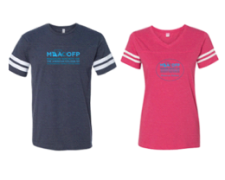MSACOFP policies, expectations, and considerations for developing educational contentThis page should be reviewed and understood in its entirety by anyone contributing to the development of educational content for MSACOFP. This includes all members of any planning or advisory committee and all faculty, speakers, and presenters. MSACOFP Policy on Full DisclosureEducation provided by MSACOFP is accredited by the American Osteopathic Association and is submitted for accreditation to the American Academy of Family Physicians. All educational activities follow accreditation guidelines to create high-quality education that is independent of industry influence. Any person who has the ability to control the educational content of accredited CME activities must disclose all financial relationships with any ineligible companies over the prior 24 months. We define ineligible companies as those whose primary business is producing, marketing, selling, re-selling, or distributing healthcare products used by or on patients. There is no minimum financial threshold; all financial relationships, regardless of the amount, with ineligible companies must be disclosed. The full Standards for Integrity and Independence in Accredited Continuing Education is available at accme.org/standards. Since healthcare professionals serve as the trusted authorities when advising patients, they must protect their environment from industry influence to ensure they remain true to their ethical commitments. Many healthcare professionals have financial relationships with ineligible companies. By identifying and mitigating relevant financial relationships, we create a protected space to learn, teach, and engage in scientific discourse free of influence from organizations that may have an incentive to insert commercial bias into education. After we receive financial disclosure information from anyone involved in creating our education (planning committee members, faculty, etc.), it is reviewed to determine whether financial relationships are relevant to the education. The identification of relevant financial relationships does not necessarily mean that the individual is unable to participate in the planning and implementation of the educational activity. The accreditation standards require that relevant financial relationships are mitigated before an individual assumes their roles in the activity. Expectations for Educational ContentEducational content must be fair and balanced, and any clinical content presented must support safe, effective patient care. This includes expectations that: All recommendations for patient care in accredited continuing education must be based on current science, evidence, and clinical reasoning, while giving a fair and balanced view of diagnostic and therapeutic options.
These expectations are drawn from Standard 1 of the ACCME Standards for Integrity and Independence in Accredited Continuing Education. For more information, see accme.org/standards. If we can help you to understand and/or apply these, please contact our office at [email protected] or (573) 634-4667. Considerations for Developing Content Consider using the following best practices when presenting clinical content in accredited CE:
Although accredited CE is an appropriate place to discuss, debate, and explore new and evolving topics, presenting topics or treatments with a lower (or absent) evidence base should include the following strategies:
|

